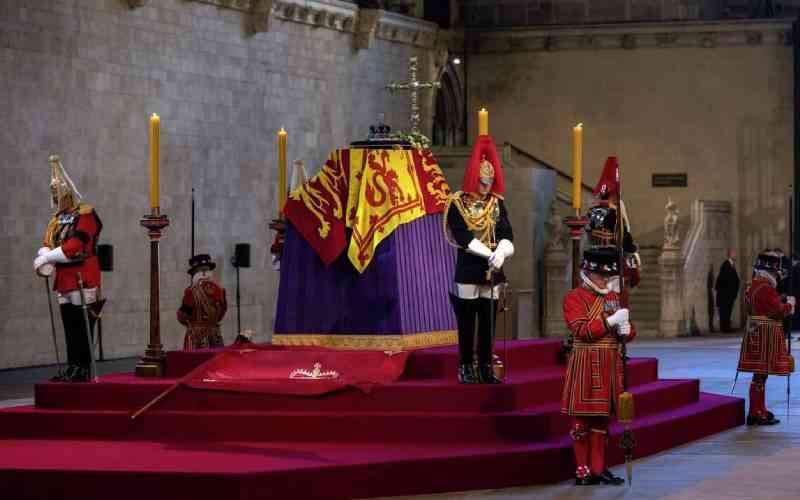×
The Standard e-Paper
Fearless, Trusted News

When Queen Elizabeth II's grandfather, King George V, died 86 years ago, many homes in Britain had little or no electricity and large parts of the population still lived in slums.
Life in 1936 is unrecognizable to Britons today. But despite almost a century of change, the images from the queen's lying in state this week are almost exact copies of those from when George V lay in state.